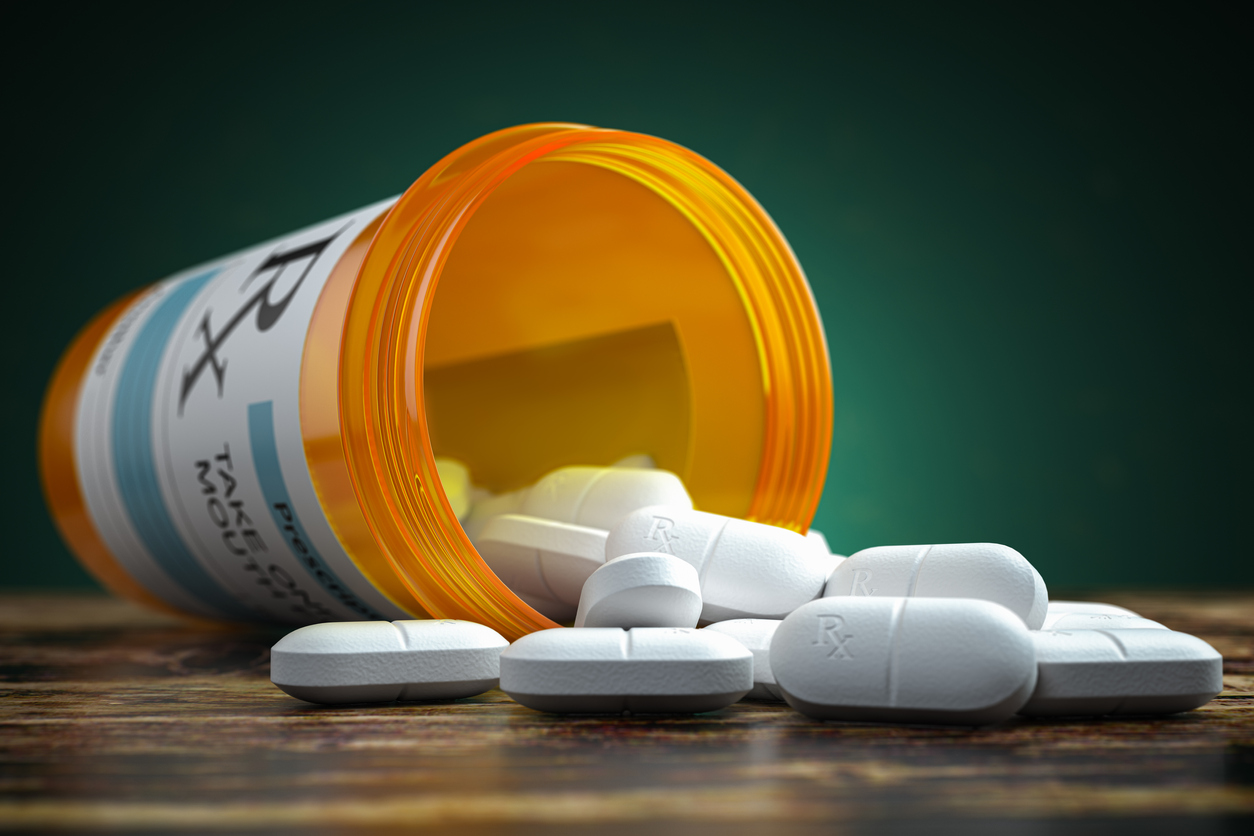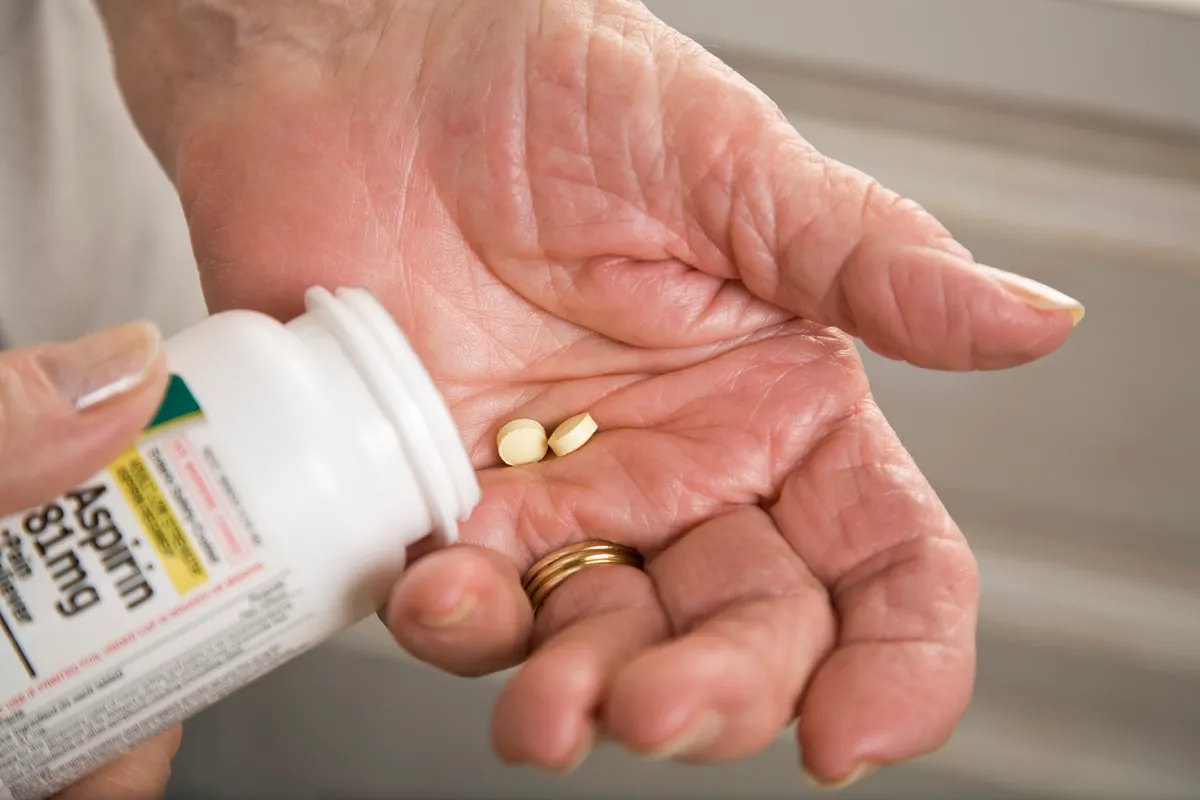6 Things Your Digestive System Wishes You’d Stop Doing, According to Experts

If you have a fussy digestive system, you’re not alone: Right now, between 60 and 70 million people are affected by gastrointestinal disorders, according to the National Institute of Diabetes and Digestive and Kidney Diseases (NIDDK). The good news? Some of that suffering is avoidable and can be addressed through simple lifestyle changes.
Chances are, you have at least a few habits that are causing or exacerbating your symptoms, and by stopping them, you’re likely to notice some improvements. Read on to learn which six things your body wishes you’d stop doing, so you can start putting your gut health first.
READ THIS NEXT: Having This Common Health Condition Lowers Your COVID Risk, New Study Says.
1
Regularly eating processed or fried foods.

If you suffer from gastrointestinal symptoms, the first factor to review is your diet. In particular, eating fried and ultra-processed foods can cause higher incidence of irritable bowel syndrome and other gut problems. “Consuming too much processed or fried food can harm your digestive health by leading to inflammation and irritation of the stomach lining,” says Zeeshan Afzal, MD, a medical officer for Welzo. “These types of foods are often high in unhealthy fats, salt, and other additives that can be hard on the digestive system,” he notes.
In general, it’s best to eat a largely plant-based diet that includes a wide range of fresh, whole foods. That said, “even some healthy foods can generate digestive discomfort, including beans and cruciferous vegetables such as broccoli and Brussels sprouts, as well as nutritional and weight-reduction supplements,” experts from Johns Hopkins Medicine write.
READ THIS NEXT: Eating This Type of Cereal for Breakfast Can Slash Diabetes Risk, Experts Say.
2
Not drinking enough water.

Staying adequately hydrated is also important to your digestive system. “Not drinking enough water can lead to constipation, which can cause discomfort and harm your digestive health over time,” explains Afzal, adding that “water is essential for keeping the digestive system functioning properly.”
According to The U.S. National Academies of Sciences, Engineering, and Medicine (via the Mayo Clinic), men should aim to drink about 15.5 cups (3.7 liters) of fluids per day, while women should aim to drink about 11.5 cups (2.7 liters) of fluids a day. Roughly 20 percent of your daily water intake may come from food, but you will need to get the rest through beverages.
3
Taking antibiotics too frequently.

According to the Centers for Disease Control and Prevention (CDC), one third of antibiotics prescribed in the U.S. are unnecessary, resulting in 47 million excess prescriptions each year. Not only can this increase the risk of antibiotic resistance, it can also cause gut problems, according to Afzal.
“Overuse of antibiotics can harm your stomach by disrupting the natural balance of bacteria in the gut,” he tells Best Life. “This can lead to a variety of digestive issues, such as diarrhea, bloating, and abdominal pain. It’s important to only use antibiotics when necessary and to follow your healthcare provider’s instructions.”
4
Using painkillers regularly.

Painkillers are another form of medication that can harm your digestive system when used in excess. “Overuse of painkillers, especially non-steroidal anti-inflammatory drugs (NSAIDs) like ibuprofen, can harm your stomach by causing inflammation and irritation of the stomach lining,” says Afzal. “This can lead to stomach ulcers and other digestive issues.”
Michael Roizen, MD, chief wellness officer emeritus at the Cleveland Clinic and author of The Great Age Reboot, Cracking the Longevity Code for a Younger Tomorrow, adds that regularly taking low-dose aspirin can have a similar effects to those of NSAIDs. “The 30 million people who take baby aspirin for aches/pains or healthy heart function are likely unaware that the gut lining is being compromised, allowing toxins to be absorbed,” he tells Best Life. “To support the gut lining and overall gut health, research has shown that taking bovine (cow) colostrum (2000 mg) and drinking plenty of water throughout the day can help.”
For more health news sent directly to your inbox, sign up for our daily newsletter.
5
Not exercising enough.

Being physically active is important to your overall health—and to your gut health in particular. According to Afzal, that’s because “lack of exercise can harm your digestive health by leading to constipation and other digestive issues. Regular exercise helps keep the digestive system moving and can help prevent constipation.”
To reap the health rewards of exercise, aim for at least 150 minutes of moderate-intensity physical activity and two sessions of strength training each week. Besides promoting better gut health, “being physically active can improve your brain health, help manage weight, reduce the risk of disease, strengthen bones and muscles, and improve your ability to do everyday activities,” says the CDC.
6
Eating too much red meat.

Roizen says eating too much red meat can also be detrimental to your digestive system. He warns that eating more than four ounces of beef or six ounces of pork a week can “change the bacterial makeup in the gut,” adding that “avoiding these is sure to make you healthier in the long run.”
To help offset the effects of dietary damage, he advocates taking a daily supplement of either Lactobacillus GG or Bifidobacterium bifidum in spore form, which he says can help increase the diversity of the bacteria in your gut.
Speak with your doctor to learn more about how your everyday habits could be harming your digestive system, and whether additional medical intervention could help relieve your symptoms.
Best Life offers the most up-to-date information from top experts, new research, and health agencies, but our content is not meant to be a substitute for professional guidance. If you have specific health questions or concerns, always consult your healthcare provider directly.
- Source: https://www.niddk.nih.gov/health-information/health-statistics/digestive-diseases
- Source: https://www.mayoclinic.org/healthy-lifestyle/nutrition-and-healthy-eating/in-depth/water/art-20044256
- Source: https://www.cdc.gov/media/releases/2016/p0503-unnecessary-prescriptions.html
- Source: https://www.cdc.gov/physicalactivity/basics/adults/index.htm
- Source: https://www.cdc.gov/physicalactivity/basics/pa-health/index.htm